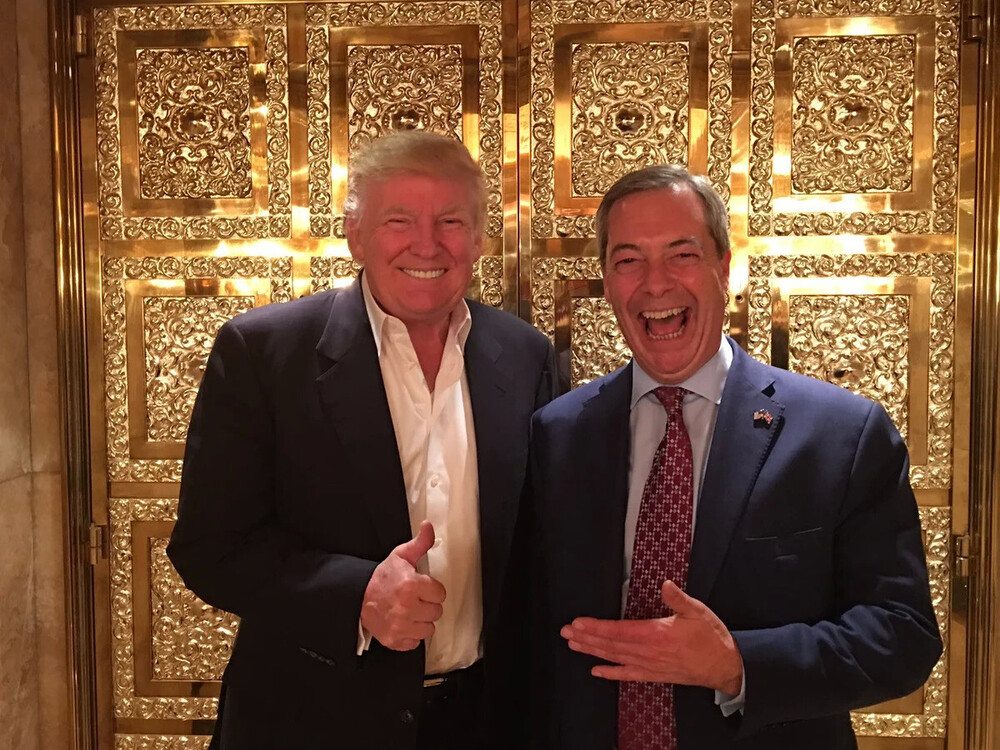
posted 19th May 2025

The name populism is a bit deceptive, as it sounds like ‘popular’. Most people want to be popular, and tend to think of things which are popular as being good things. Populists often are popular - they wouldn’t win elections in democracies otherwise - but in fact the name comes from their claim to represent the people against the elite, derived from the Latin word ‘populus’, meaning people.
What makes a politician or a political party populist?
1. They claim to represent ‘ordinary people’ against a powerful elite
For a populist, the people in charge - the elite - are self-serving and corrupt. They are a tiny minority, do not represent the people, and are taking advantage of them.
Who are the elite? That depends on what kind of populist you are. For left-wing populists, they are the wealthy, particularly those in the finance industry. For right-wing populists, they are the highly educated, who tend to have liberal views on gender, sexuality, and, particularly, immigration.
Who are the people? For left-wing populists they are the economically disadvantaged, who are being exploited by the rich. For right-wing populists, they are people, often less highly educated, who want to preserve their traditional values and protect their communities from intrusion by outsiders.
Once populists win an election, they are the ones in charge. Does that make them the elite?
Populists deal with this by claiming that the elite is still there, somehow sabotaging them from within. So if anything goes wrong, it is the fault of the elite, not the governing populists. In practice, once in power, populists often form an even more corrupt elite, using their position to enrich themselves and their friends and family.
2. They are divisive
Populists claim that anyone not in the elite is one of the people. They promise that they will take back control from the elite on behalf of the people. Given that the elite are very few and the people are very many, this should mean that everything populists do will be, er, popular.
A problem arises when it turns out that not all the people are the same. Some of them don’t actually want to overthrow the capitalist system, because they believe it works rather well as a way of providing prosperity for everyone. Or perhaps they don’t see immigrants as a threat to their country, because they rely on them to drive their buses, keep their hospitals clean and look after their elderly parents.
How do populists deal with this problem? Well, if people don’t accept the definition of themselves they are given by the populists - as people who hate capitalism, or hate immigrants - they clearly aren’t ‘real’ people and do not belong to ‘the people’. This attitude is well summed by the slogan of some of the supporters of Donald Trump: ‘America: love it or leave it.’ In other words, either accept our definition of how our country should be, or you don’t belong here.
So populism is inherently divisive. Populists don’t just set the people against the elite; they also set those who support them against those who don’t.
All political movements have supporters and opponents. Debate and disagreement are part of a healthy democracy. What is different about populism is that populists claim, not just that their opponents are wrong, but that they somehow do not deserve to belong to society.
3. They offer simple solutions to complex problems
Struggling to pay your energy bill? Simple. Tax rich people more and use the money to subsidise energy bills. Can’t get a GP appointment? Simple. Stop people coming into the country and there will be more spaces.
But these policies aren’t simple. Raising tax may have knock-on effects, such as discouraging investment in the economy. Walk into any hospital and you will soon see that the NHS would collapse without immigrant workers.
This is not to say that there is not a valid case to be made for increasing tax on the wealthy, or reducing immigration. There is. But it needs to consider the downsides of either of these courses of action, to accept that there will be costs as well as benefits, but to argue that the benefits will outweigh the costs.
Populists don’t do cost-benefit analysis. For them, their solutions are all benefit and no cost. So their policies look superficially appealing in the short term, but they often fail to work in the long term. They are the equivalent of having a Mars bar for breakfast instead of porridge. The Mars bar tastes better and gives you a short term energy hit, but by eleven o’clock you’re tired and hungry again. Porridge takes longer to make and is less immediately tasty, but it keeps you going till lunchtime.
3. They challenge the rule of law
The rule of law is the set of rules we all play by. Just as every sport has rules, so does society. Sometimes these rules are inconvenient and get in the way. If you are about to have a clear shot at goal in football, and a player from the other team tries to tackle you, it would be much easier just to push them out of the way and take the shot. But you know if you did this, the goal would be disallowed, and the other team would be awarded a free kick.
Most people accept the rules, even when they are inconvenient, because they know they are there to protect them - to stop someone else from pushing them out of the way. Just like football, society has rules, which may stop governments doing things they want to do.
Populists don’t like the rule of law, as they want to be free of any restraints. They claim that having won an election gives them the right to do whatever they want.
For example: in the UK in August 2019, Boris Johnson asked Queen Elizabeth to close down parliament, so he could get Brexit done without any scrutiny by MPs. The UK Supreme Court found that this was against the law. Mr Johnson claimed that the court was biased; in fact they were just applying the rule of law.
Similarly, in April 2025, Donald Trump had a group of alleged gang members deported to a prison in Venezuela, without going through the due process of having them put on trial and found guilty. The US Supreme Court ruled that this was against the law, and ordered that they be brought back. Mr Trump chose to ignore the Supreme Court’s ruling, that is to defy the rule of law.
Defying the rule of law is another example of applying a simple solution to a complex problem. We’ve got too many criminals on our streets - what do we do? Arrest a lot of suspects and kick them out of the country, without bothering to go through all the hard work of putting them on trial. That gives a quick hit of satisfaction - it makes us feel safer in the short term - but further down the line it makes us less safe, as we have no protection from unfair treatment by the government. It’s the Mars bar strategy again.
Motions that go with this topic
1. This house fears populism.
2. This house would vote for Reform.
3. This house believes the will of the people is more important than the rule of law.
4. This house would use civil disobedience against Donald Trump’s government.





